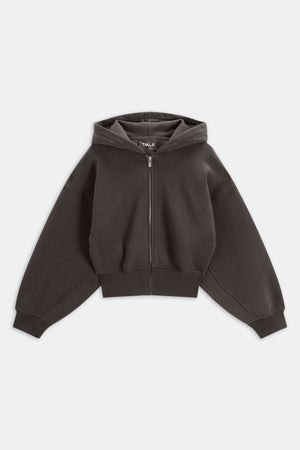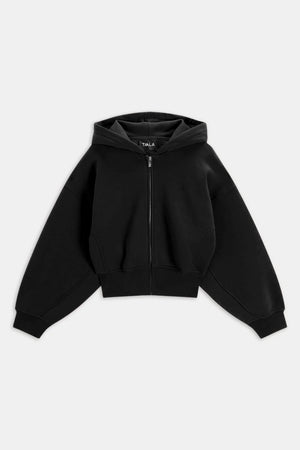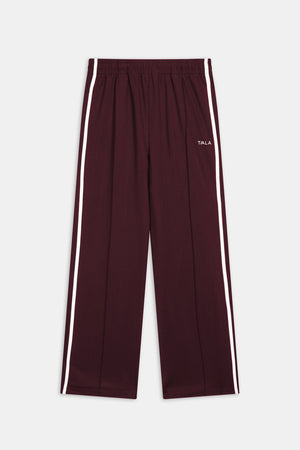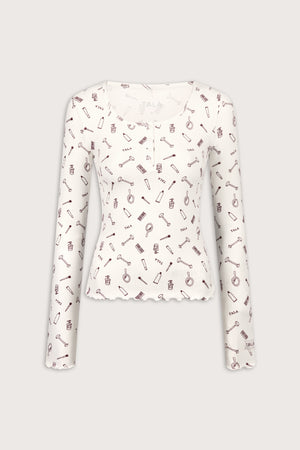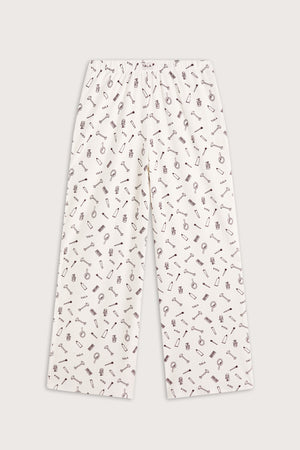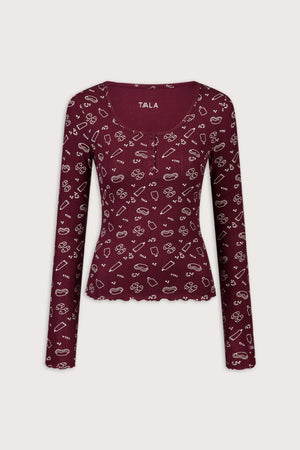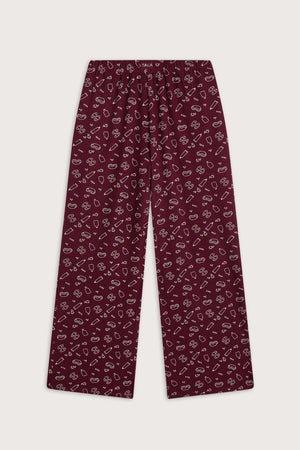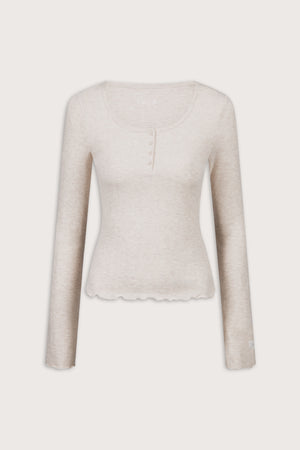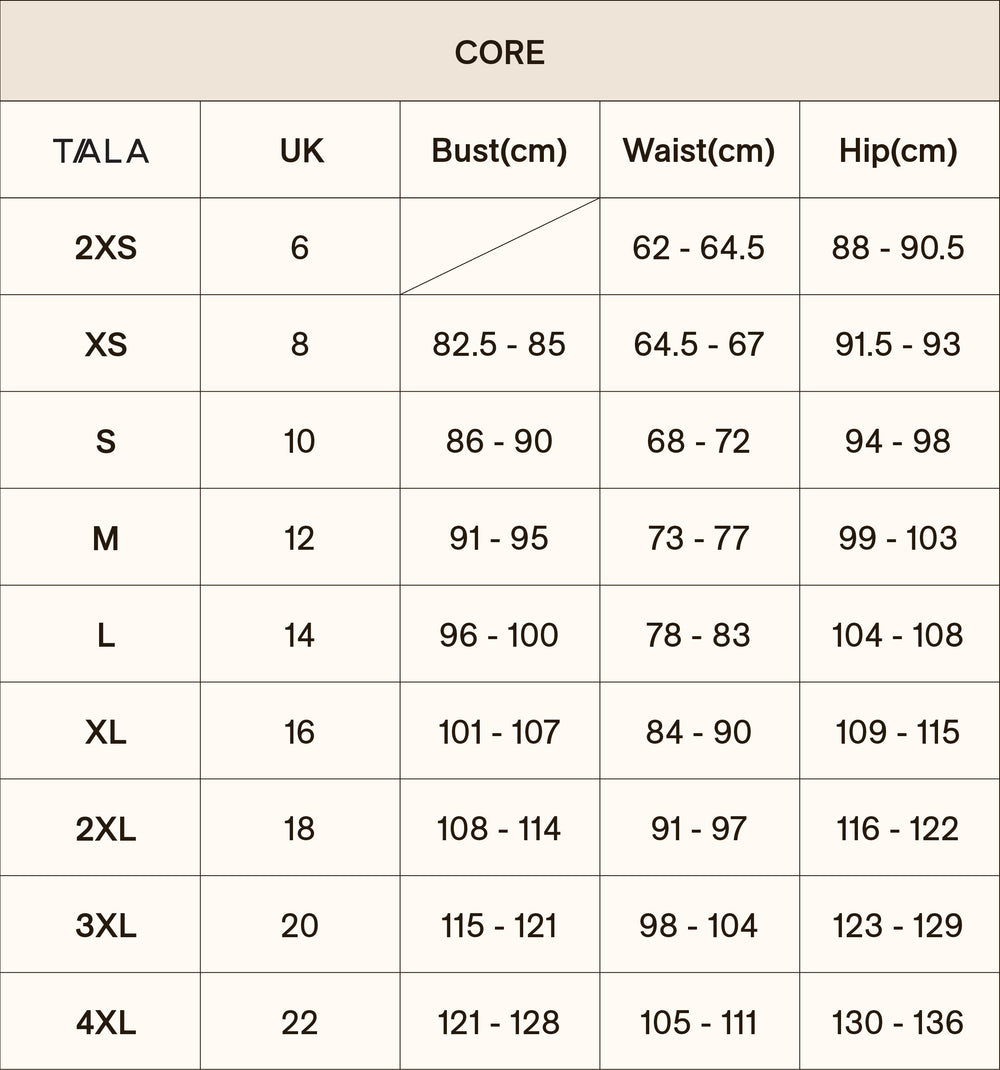/ PRODUCT
MADE THOUGHTFULLY
We are detail oriented and quality obsessed. We make active-inspired pieces that look good and feel good - from every angle. We sweat the small details so you can focus on the big things in your life. Every TALA piece, collection and detail is made with you and the planet in mind.
Our collections are carefully designed, created and produced with recycled and naturally sourced materials. We do this to reduce our impact on the environment by using pre and post-consumer “waste” which we turn into our SkinLuxe, DayFlex and Sculpt Seamless collections (to name a few).
We never make products specifically for discount or sale promotions. If our stock sells differently than expected, we engage in sales or other responsible solutions to ensure all our products make it to a loving home (aka, not a landfill).
MADE FOR TODAY / TOMORROW / ON REPEAT
Our impact on the planet has been important to us from the very beginning - and always will be. We’re conscious of our fabric choices. We create versatile, effortless, flattering and high quality active-inspired pieces, made to last - season after season, workout after workout. We carefully consider how we package, ship and supply our clothes. We’re not perfect. No fashion brand is. But we promise to continue making TALA better and to tell you how we’re doing it, so you can make informed choices about the clothes you buy.
OUR FACTORIES
We have a strict grading system to ensure factories comply with our code of conduct. The TALA product team works closely with the factories to resolve any non-compliances that may crop up. We never onboard a new factory without an audit that meets our ethical compliance policy. In the following sections, we share further information on our supply chain and where our products are made.
Tier 1 factories are our main production sites where cutting, sewing and packaging happens. Our tier 1 supply base includes 22 factory units across China, Cambodia, India, Taiwan, Turkey and Vietnam. In 2025, 71% of the factory units are based in Asia and 29% in Europe.
Tier 2 suppliers are our subcontractors that embroider, print and dye. We make sure that all our tier 2 suppliers sign the TALA Ethical Trade Policy and Code of Conduct. In 2025, 58% of Tier 2 suppliers are in Asia (China, Taiwan and India) with 42% in Europe (Turkey).
Tier 3 suppliers spin, knit and weave yarn into fabrics and are managed by our tier 1 factories. Our tier 1 factories have long-standing partnerships with the mills and can provide high performance certifications and fabrics. During product development meetings and trips, the TALA product team collaborates with the tier 3 suppliers to develop brand new and innovative fabrics.
Tier 4 suppliers handle raw materials. TALA has a partnership with Lenzing, who supply our mills with their Tencel Modal fibres. We use these high quality yarns in our lifestyle products.
We are proud of our long-standing partnerships within our supply chain. TALA strives to continue to map the supply chain to raw material suppliers.
CHINA
Our activewear and accessories are made in China due to the specialist fabrics and skilled workmanship available. Our main activewear factory is based near Shanghai and we’ve worked together since the very beginning.
CAMBODIA
Our swimwear is produced in Cambodia by a world-class factory who make swimwear for UK performance swimwear brands. The factory is part of the P.A.C.E (Personal Advancement & Career Enhancement) charity program for women and girls and they started their ‘Learn to Swim’ programme in 2018 that provides swimming lessons for their employees.
TAIWAN
The female family run factory has been producing performance activewear for over 40 years with its original roots in producing ballet leotards. Certified by HIGG with Sedex audit.
TURKEY
TALA’s Turkey factories produce our jersey, knitwear and seamless products because of their expert mills and manufacturing capabilities.
Our seamless factories are powered by solar panels to reduce carbon emissions, and strive to run on 100% solar powered energy in the near future. The factory’s on-site dye house has a water recycling process that cleans and reuses water. Rain water is also collected and used in the dying process. A heat isolation system was installed to reduce energy consumption by 10% as the dying process is done at a lower temperature.
VIETNAM
Since 2021, we have partnered with a world-wide supplier based in Hanoi, Vietnam who manage our outerwear production from a tier 1 factory in the south of Vietnam. The factory has Reach, Higg and GRS certification along with a Sedex ethical audit.
OUR FABRICS
All TALA products are made with at least 50% sustainable fibres which includes recycled or plant based fibres. Accurate as of May 2025.
RECYCLED YARN
At TALA we use recycled Polyamide and Polyester for our activewear ranges because of their stretch, durability and moisture wicking properties. Recycled yarns are split into pre and post-consumer categories.
Pre-consumer recycled fibres: a fibre or by-product generated after the manufacture of a product but before the product reaches the end-use consumer. This means using factory offcuts (which would otherwise end up in landfill) to create new products.
Post-consumer recycled fibres: a product or fibre that would otherwise be disposed of by consumers as solid waste usually ending up in landfill.
NATURAL BASED FIBRES
Natural based fibres derive from natural sources with the most common fibres being cotton, silk, wool and viscose. These fabrics are bio-degradable and contribute to TALA's sustainability goals. At TALA we ensure our natural fibres are ethically sourced by using Organic Cotton and Lenzing. Please refer to our product / sustainability pages to learn more about TALA's fabrics and transparency
CELLULOSIC FIBRES
Our super soft 365 products contain TENCEL™ Modal and Lyocell fibers which are are derived from certified or controlled wood sources. The wood pulp is produced in a process similar to the paper industry. The pulp is then dissolved and the cellulosic fibers are regenerated from the solution into the appropriate fiber shape, length and diameter, making them ideal for the textile industry.
TENCEL™ Lyocell and Modal fibers are made with at least 50% less carbon emissions and water consumption compared to generic lyocell and modal. These fibers are are naturally soft and smooth to the touch.
TENCEL™ Modal fibers help to retain the softness of fabrics even after repeated washing and support a natural dry feeling through effective moisture control
PACKAGING
In 2023, we replaced our plastic mailer bags with naturally-sourced paper bags that are 100% home-recyclable, meaning once you've received your TALA goodies, your mailer bag can go straight into your recycling bin.
ReTALA
In October 2023, we launched ReTALA in partnership with Reskinned, a company that helps repurpose, recycle and resell clothes that otherwise would end up in landfill. Simply post the TALA pieces you no longer wear and Reskinned will take care of the rest; giving your pre-loved pieces a brand new home. As a thank you for parting ways with your pre-loved TALA pieces more sustainably, you’ll get a voucher from us to spend on your next TALA purchase.
In 2024, we launched the next stage of our takeback programme with Reskinned, which allows you to buy refreshed and repaired pre-loved TALA at a reduced price. This includes deadstock that we can no longer sell, items returned to us through ReTALA, or even shoot samples - either way, saving products from landfills and saving money on pre-loved TALA pieces is a win-win.
We are incredibly grateful to our TALA community for allowing us to push industry barriers today and every day. We're always open to new ideas, so if you think of a way that we could do things better, please let us know at hello@wearetala.com.
